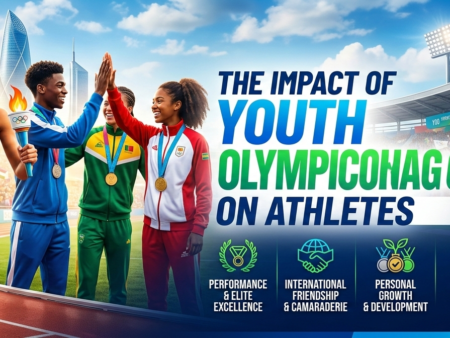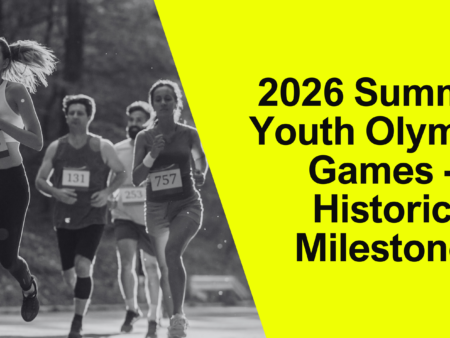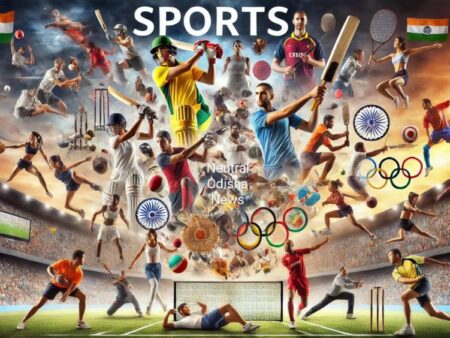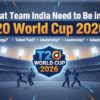The Olympic platform translates to the peak of athletic performance; everyone wants to see the best of the best from around the world and after years of training. This global stage is a dream and a huge challenge for Indian athletes. India has produced talent in various fields of sports in the past, but the performance of the Indian team at the Olympics gives a feel of a team with great potential but numerous problems. They include the following: These are organizational barriers that deny the growth of athletes and limit their movement and fitness, hampering competitiveness with the world’s best.
Funding Issues
Currently, these athletes suffer from extremely limited funding, and this remains one of the major problems that can be solved only on a state level in India. Olympic preparation entails the use of optimum coaching equipment as well as support structures. However, the distribution of resources in this context in India still seems to be skewed towards one or the other sports. Most of the gifted sportsmen and women practicing these less-known sports haven’t been able to solicit sponsorships all their careers and end up using their own money or getting minor sponsorships whenever they can. Hence the lack of financial stability is not only felt in their training but a turn-off, which creates undue stress, thus moving their focus from performance.
Lack of Infrastructure
Sports infrastructure forms the foundation of any nation’s sporting system, and this is one area in which India has been very weak. A lot of athletes worldwide do not receive proper training conditions. and they have to work in conditions that are not adequate in the least. Although it is well understood that metropolitan cities provide better infrastructure facilities, athletes hailing from rural or economically backward areas encounter a big gap. Failure to have dedicated specialized centers for such specializations as gymnastics, swimming, athletics, etc. compounds the issue whereby our athletes undertake their practice in normal structures that cannot even compare to international standards.
Inadequate Coaching
An athlete cannot overemphasize the role of a coach in molding their careers. However, currently, in India, the number of qualified and specialized coaches is scarce. Fortunately, technology has not reached the athletic training coaches and people overall, or they are still stuck with stale exercises and routines, or they teach themselves right and wrong information. Unfortunately, the current emphasis on high-performance training often fails to match the availability of sound practice for constancy development programs and proper certification processes, which (branch) may lead to a significant gap in the programs or information provided. Besides, there may be language difficulties and cultural differences that would prevent, for instance, Indian sportsmen from understanding foreign experts when such professionals are brought in.
Limited International Exposure
Some of the reasons for international completion include that skills in competition are tested and interpreted at the international level, hence the need to understand what is expected of the region. Indian athletes sometimes also do not get enough practice outside their own country, and this is a hugely important factor when competing with the rest of the world. Participation in international tournaments is very limited because it is only arranged occasionally due to hardships in acquiring finances or organizing events. There is always a time when athletes lack exposure to advanced-level competitions, and this would work against them in their quest to secure Olympic slots.
Government Policies
The government of India has attempted various schemes to encourage sports, but the implementation of the programs is generally poor. Long administrative procedures and, thus, high bureaucracy, slow distribution of funds, and minimal responsibility become barriers for athletes. There are pre-existing models, such as the Target Olympic Podium Scheme (TOPS), that hold some hope but are not as big and encompassing. Further, the increased emphasis on winning rather than on the development of athletes along career paths and the process of establishing a sustainable sports culture makes the establishment of a sustainable sports system difficult.
Sports Science Neglect
Sports science is particularly important in today’s world when athletes seek to maximize their performance. Nutrition, training hardening, psychological preparation, elasticity, and lots more are all part of the disciplining system in sports science. However, regarding the future of sports science in integrating into athletic programs in India, till now it is not very developed. Most athletes never afford to seek the services of a physiotherapist, nutritionist, or even a sports psychologist, and this hampers their performance. Such negligence results in the development of complications that hinder the achievement of the desired Olympic dream or complete exhaustion.
Societal Pressures
There are tendencies that Indian athletes are experiencing certain stigma that may affect their performance. Compounding the difficulties regarding athletic performance, many athletes in the country find themselves receiving inadequate support, and thus the deviation from the traditional top academic performers norm makes them the least supported in their endeavors. This problem is compounded by the fact that there is no well-developed social support for athletes. Another issue that discourages females from carrying on sports at a professional level is matters arising from their gender Nature has endowed female athletes with talent, but their experiences, including gender bias and safety concerns, eventually dissuade them.
Political Interference
Synchronicity between political interference and sports management has always been on the English agenda when talking about Indian sports. Issues concerning the choice of team, funding, and management, especially among family businesses, easily go wrong through favoritism and nepotism. This interference not only discourages deserving athletes but also puts merit aside as a factor that needs some attention. Lack of professional management of the sports and the players adds to the problem, where the “system,” as it seems, is a hindrance to the athletes.
Inconsistent Training Programs
One has to agree with the fact that regularity is the key to training to enhance athleticism. However, it has been seen that Indian athletes experience disruptions resulting from an inconsistent training routine, inadequate infrastructure, and a fluid coaching team. These could slow them down or even deny them optimal performance at the right time. Further, the lack of a clear talent search and development mechanism means that a high number of talented individuals fail to achieve their potential as athletes.
Mental Health Challenges
The competition is huge while, for Indian athletes, counseling services to help keep up with that pressure are scarce. There are many barriers to athletes getting the help they need, including cultural factors in the U.S., where mental illness is still a taboo subject, through to India, where the culture of seeking professional help is almost nonexistent. The psychological aspect of the athletes is therefore vital; however, the athletes may be afflicted by pressures such as anxiety, doubt, and burnout, which would affect them in international competition.
Conclusion
Indians are gifted and focused both mentally and physically; however, they face a lot of ordeals to qualify for the Olympics. Some of the areas that need to be discussed include funding, facilities, coaching, and mental health, which must be in a combination of government, sports federations, and private sectors. But these hurdles could be taken away by the Indian government to create a conducive environment that would produce talented athletes right from the junior level and then watch India as a force to reckon with on the Olympian stage.







